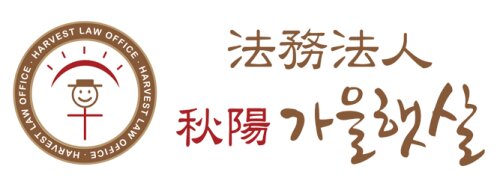Best Lawyers in South Korea
Share your needs with us, get contacted by law firms.
Free. Takes 2 min.
Or refine your search by selecting a city:
List of the best lawyers in South Korea
About hiring a lawyer in South Korea
In South Korea, the legal profession generally falls into two categories - Byeonhosas (Attorneys-at-law) and patent attorneys. Byeonhosas perform a wide array of tasks including litigation, real estate transactions, mediation, and corporate counseling, among others. However, you have no obligation to hire a local Korean lawyer since foreign legal consultants (FLC) are allowed to provide legal counseling on affairs regarding their home country’s law, international laws, and other non-Korean affairs.
Note that attorneys in Korea are prohibited from taking a percentage of the client's punitive damages as their fees. The legal fees can be hourly, fixed, or calculated based on the Korean Bar Association’s officially recommended fee schedule.
Why You May Need a Lawyer
Legal issues can present themselves in various manners, whether for personal matters or business-related issues. Professionals, expats, and corporations may need the services of a lawyer when dealing with property disputes, marital issues, labor disputes, immigration issues, intellectual property matters, criminal allegations, contracts, or in starting a business. Understanding complex Korean laws, document preparation, court representation, and negotiating in legal disputes are just a few things where legal expertise could prove invaluable.
Local Laws Overview
South Korea operates under the Civil Law system, which means it uses a set of codes and statutes to base their judicial decisions on. Criminal laws are very strict, especially about drugs, defamation, and national security. Particular attention should be given to intellectual property laws, which can be stringent, as well as immigration laws. In addition, there are strict anti-corruption laws all companies should be aware of, including the Korean Fair Trade Commission’s regulations and the Improper Solicitation and Graft Act.
Frequently Asked Questions
1. How can I confirm a lawyer’s credentials in South Korea?
Attorney credentials can be verified through the Korean Bar Association. They provide a database that lists practicing lawyers in South Korea.
2. How much will it cost to hire a lawyer?
The cost varies widely based on the issue at hand and the attorney’s expertise. Legal cost information can be discussed directly with your lawyer.
3. What is the standard procedure for filing a lawsuit?
Preliminary documents are prepared by your counsel followed by filing a complaint to the court and serving the defendants. The defendant has 30 days to submit a response.
4. Are there English-speaking lawyers in South Korea?
Yes, many law firms in South Korea offer services by English-speaking lawyers, especially in major cities like Seoul.
5. Can foreign lawyers practice in South Korea?
Foreign attorneys can practice as Foreign Legal Consultants (FLCs) but are restricted to practicing law concerning their native country and international laws.
6. Are court proceedings in South Korea open to the public?
Court proceedings are typically open to the public unless the court decides to exclude the public in circumstances where privacy is required.
7. How are business disputes resolved in South Korea?
Although court litigation is an option, alternative dispute resolution methods like arbitration and mediation are popular for business disputes.
8. What protection is available for intellectual property rights?
Intellectual property rights are protected under the Patent Act, Trademark Act, Design Protection Act, and Copyright Act of South Korea.
9. Are there any laws about hiring and firing employees?
The Labor Standards Act is the principal law that provides protection against unfair labor practices, including hiring and firing.
10. Can I represent myself in a South Korean court?
Yes, it is possible to represent yourself, but due to the complexities of legal procedures, it is generally recommended that you hire a lawyer.
Additional Resources
You can use online resources like the Korean Ministry of Government Legislation’s website for finding translated Korean statutes and contacting the Korean Bar Association for hiring attorneys. The Ministry of Justice’s website also provides useful information about South Korea's legal system. For foreign residents, the Seoul Global Center provides free legal consultation services.
Next Steps
If you require legal assistance in South Korea, the first step should be identifying and reaching out to a suitable attorney or law firm that specializes in the area of law related to your issue. Once an attorney is selected, discuss your issues in detail and understand their proposed approach and potential costs before making a formal agreement.
Lawzana helps you find the best lawyers and law firms in South Korea through a curated and pre-screened list of qualified legal professionals. Our platform offers rankings and detailed profiles of attorneys and law firms, allowing you to compare based on practice areas, experience, and client feedback.
Each profile includes a description of the firm's areas of practice, client reviews, team members and partners, year of establishment, spoken languages, office locations, contact information, social media presence, and any published articles or resources. Most firms on our platform speak English and are experienced in both local and international legal matters.
Get a quote from top-rated law firms in South Korea — quickly, securely, and without unnecessary hassle.
Disclaimer:
The information provided on this page is for general informational purposes only and does not constitute legal advice. While we strive to ensure the accuracy and relevance of the content, legal information may change over time, and interpretations of the law can vary. You should always consult with a qualified legal professional for advice specific to your situation.
We disclaim all liability for actions taken or not taken based on the content of this page. If you believe any information is incorrect or outdated, please contact us, and we will review and update it where appropriate.
Refine your search by selecting a practice area.
Accidents & Injuries
Banking & Finance
Bankruptcy & Debt
Business
Civil & Human Rights
Consumer Rights
Corporate & Commercial
Criminal Defense
Employment & Labor
Energy, Environment & ESG
Family
Immigration
Insurance
Intellectual Property
Lawsuits & Disputes
Media, Technology and Telecoms
Notary Services
Private Client
Real Estate
Browse law firms by city in South Korea
Refine your search by selecting a city.

































